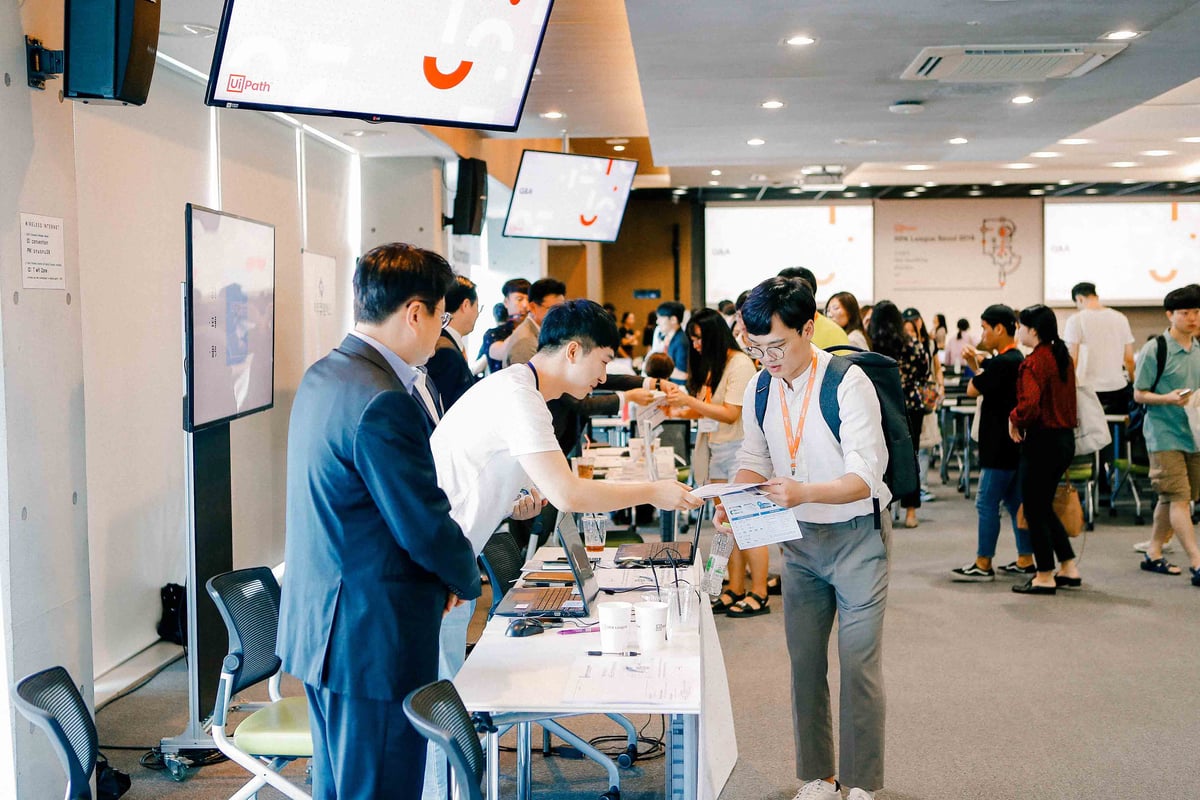RPA Hackathon for Accounting Sector - HacktomateAccounting
Share at:

Introduction
Robotic process automation (RPA) can reshape the accountancy sector. We can automate processes across different tools and applications to reduce repetitive tasks for the audit and accounting roles.
The aim of the HacktomateAccounting is to challenge the accountancy sector to understand business processes and to discover process improvement opportunities using UiPath products to maximize human potential and achieve productivity.
Do more with automation
The scope is to overcome real-life work inefficiencies with technology. The solutions can be significant game changers. Imagine that you could save up to 80 working hours a month for the sales audit. HacktomateAccounting is an initiative aimed to uncover automation solutions to accelerate and bring more value to the day to day operations of the accounting sector. This is the first RPA hackathon for the accounting sector organized jointly by the Institute of Singapore Chartered Accountants (ISCA) together with UiPath in September 2021. It gathered 23 submissions from accounting professionals and students.
Participants were asked to come up with a solution to one of the questions below:
Audit process
: How can you use RPA to reduce at least one step you take in your day to day work?
Finance, planning and treasury processes:
How can RPA reduce the manual work of the finance role?
Open category:
How can you bring more value by automating monotonous tasks?
Judges' testimonials
Chief Executive Officer Designate of ISCA Fann Kor, one of the hackathon’s judges, said the initiative reinforced her belief that technology offers vast opportunities for the accounting roles to deliver greater value.
“It is encouraging to see the accountancy students’ ability to generate solutions that address challenges faced by the industry.” she said.
Alan Tan, Global Industry Director (Finance & Accounting) at UiPath, also part of the judging panel, was impressed by how fast and bold the participants developed solutions.
“These hackathon submissions are good evidence for the ease of using RPA solutions to support digital finance transformation,” he said.
Let's have a closer look at the winning RPA submissions.
Winner solutions round table
Daryl Aw – Champion
The audit industry is known for its long working hours and high turnover rates. How can the jobs of auditors be improved in the workflows and staff burnout reduced? This was the problem that five lecturers from Singapore Polytechnic set out to solve. Supervising 200 students, they generated a suite of RPA solutions that automate common and mundane processes.
Their goal is to free up auditors from repetitive tasks and help them focus on value-added tasks. Among the robots they developed, one was in charge of automating the gross sales audit to validate the total sales generated by a retailer for a particular period. A certified report was generated to be submitted to its property owner. Typically, a sample of 25 transactions is prepared before the data can be examined and verified through a process called vouching. This involves extracting data from multiple Excel sheets.
By automating the sampling process, the team reduced the audit time from 24 hours to just one hour. “Robots won't take away our jobs as auditors and accountants. We need to leverage robots to help us be more efficient and effective, to save time and to spend more time with our family and loved ones.”, says Daryl Aw, representing the team of lecturers from Singapore Polytechnic.
Team Lok Lok – 1st Runner-Up
Each month, staff from the finance department of JTC Corporation go through a tedious process to verify electricity bills owned by the organization. First, the bill is downloaded from SP Group’s website. Next, information is extracted in files in Excel. The figures are then verified and posted to the JTC’s general ledger. The four-step process takes just five minutes, but when repeated a thousand times it becomes a highly time-consuming task. Team Lok Lok, consisting of three representatives from JTC’s finance department, designed an RPA solution that automates the process completely. The verification step remains manually to ensure that the figures are extracted accurately. Saving around 80 hours a month is the result of automation.
“Our idea covers a relatively general process within the finance division. It could be readily applied to other processes across all organizations, helping to alleviate workforce constraints. Reducing time spent on manual work processes allows individuals to better allocate resources for other aspects of their work," says team Lok Lok.
Team Obelix – 2nd Runner-up
Tax teams face mounting challenges from cost pressures, increasing demands from tax authorities and new requirements from their own organizations. But instead of producing ways to confront these new challenges, they spend an inordinate amount of time on manual and repetitive tasks like data extraction and tax calculations. Team Obelix wants to change this, with an RPA solution that automates the filing of Form C, Form C-S (Connection Service), and Form C-S-Lite. Companies need to fill out these forms to declare their income.
The student trio from Singapore Polytechnic developed a robot that could fill up the forms and save it as a draft directly on the Inland Revenue Authority of Singapore (IRAS) website. If a company must file 50 forms for each type, the RPA solution will save up to 27.5 hours. This is equivalent to a whopping jump in efficiency.
Conclusion
Inspired by these game-changing solutions? Find out how RPA can make a difference to your finance and accounting department. Discover more here. Download a white paper to explore how to improve productivity, drive costs down, and streamline compliance.
Design thinking and RPA technology come together to automate audit, accounting and tax processes. See how to reshape specific processes to enable human collaboration in a detailed use case in the UiPath Community Forum.
Topics:
Hackathon
Senior Director, Demand Generation, UiPath
Get articles from automation experts in your inbox
SubscribeGet articles from automation experts in your inbox
Sign up today and we'll email you the newest articles every week.
Thank you for subscribing!
Thank you for subscribing! Each week, we'll send the best automation blog posts straight to your inbox.



